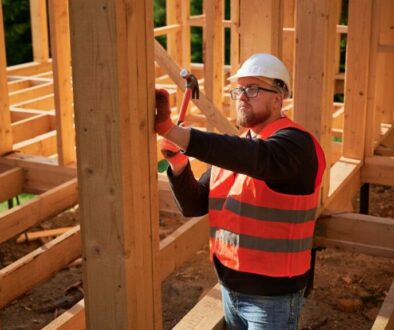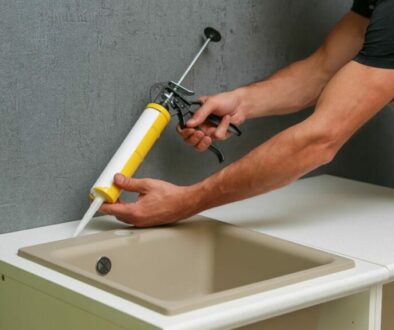What Are Air Filtration Skills?
Air filtration skills are an essential component in maintaining a healthy and safe working environment. With pollution and airborne diseases on the rise, it has become imperative to have individuals who possess expertise in air filtration and purification. Air filtration skills consist of various techniques and practices that help keep the air quality at a desirable level. In this article, we will explore some air filtration skills and discuss how to improve them.
Air Filtration Skills Examples
There are numerous useful air filtration skills that can help ensure a clean and healthy environment. Here are some essential examples:
- Knowledge of HVAC systems: Understanding the workings of HVAC systems is crucial in air filtration skills. Proper maintenance and cleaning of these systems is critical in filtering pollutants.
- Familiarity with air filters: Knowing the different types of air filters and how they work is essential in air filtration skills. Knowledge of air filter ratings and their effectiveness in trapping pollutants is necessary.
- Expertise in indoor air quality: Knowledge of sources of pollutants and how to control them is among the critical air filtration skills. This expertise helps in mitigating airborne diseases and maintaining a healthy working environment.
- Maintenance of air-cleaning appliances: Understanding the maintenance requirements of air-cleaning appliances such as humidifiers and dehumidifiers is also an important skill. Regular cleaning and replacement of filters in these appliances is necessary to ensure that they are functioning optimally.
- Proficiency in ventilation: Proper ventilation systems are vital in air filtration skills. Understanding how to control airflow in buildings and rooms helps filter pollutants and improve air quality significantly. Ventilation systems should be regularly inspected and maintained to ensure that they are functioning correctly. Additionally, knowledge of natural ventilation techniques like opening windows and doors can also be useful in air filtration.
Having these air filtration skills is essential, especially in places where air pollution is prevalent. For instance, people living in cities with high levels of air pollution may suffer from respiratory problems such as asthma. Therefore, it is crucial to have individuals with these skills to help mitigate the effects of air pollution.
Moreover, an understanding of air filtration skills is essential in various industries such as manufacturing, construction, and healthcare. In manufacturing, for example, air filtration skills are necessary in ensuring that the air quality in the factories is optimal, and workers are not exposed to harmful pollutants. In healthcare, air filtration skills are crucial in preventing the spread of airborne diseases in hospitals and other healthcare facilities.
Air filtration skills are essential in maintaining a healthy environment. Individuals with these skills play a crucial role in ensuring that the air we breathe is free from harmful pollutants. Therefore, it is essential to invest in educating people on air filtration skills, especially in areas where air pollution is prevalent.
How Do You Improve Air Filtration Skills?
Improving air filtration skills can significantly increase the quality of indoor air. Here’s how to go about it:
- Training and education: Taking courses, workshops, and seminars in indoor air quality and air filtration skills will help improve knowledge and expertise in the field. There are many institutions that offer training and education in air filtration skills. These institutions include universities, trade schools, and vocational schools. Courses offered range from basic air filtration skills to advanced air filtration skills. Additionally, there are many online resources available for those who prefer to learn at their own pace.
- Practical experience: Gaining practical experience in air filtration through working with experts in the field will improve air filtration skills. One of the best ways to gain practical experience in air filtration is through an apprenticeship or internship program. These programs provide hands-on experience working with experts in the field. Additionally, volunteering with organizations that work on air quality issues can provide valuable experience.
- Research: Keeping updated with the latest developments and innovations in the field of air filtration is critical in improving air filtration skills. Staying up-to-date with the latest developments and innovations in air filtration can be done through attending conferences and workshops, reading industry publications, and networking with other professionals in the field. Additionally, conducting research on air filtration can help identify new trends and solutions.
- Testing and measuring: Continuously testing and measuring air quality in buildings can help identify pollutants and implement appropriate filtration systems. Regular testing and measuring of air quality in buildings can be done through the use of air quality monitors. These monitors measure the levels of pollutants in the air and can help identify areas where air filtration systems may be needed. Additionally, monitoring the effectiveness of existing air filtration systems can help identify areas for improvement.
Why Do Employers Look For Air Filtration Skills?
Employers look for individuals with air filtration skills for several reasons:
- To comply with regulations: Many countries have regulations that require companies to maintain a healthy working environment. Therefore, employers seek individuals with air filtration skills to adhere to the regulations.
- To ensure employee health: With increasing pollution levels, maintaining a healthy working environment has become a priority for many organizations. Air filtration skills are necessary to achieve this goal.
- To improve productivity: A healthy environment leads to improved employee productivity. Employers seek individuals with air filtration skills to create conducive working environments that improve productivity.
However, the benefits of air filtration skills go beyond just meeting regulations and ensuring employee health. Here are some additional reasons why employers look for air filtration skills:
1. Improved Indoor Air Quality
Indoor air quality can have a significant impact on employee health and well-being. Poor air quality can cause respiratory problems, headaches, fatigue, and other health issues. Air filtration skills help individuals identify and mitigate factors that affect indoor air quality, such as poor ventilation, moisture, and pollutants. By improving indoor air quality, employees can work in a healthier and more comfortable environment.
2. Energy Efficiency
Air filtration skills can also help organizations improve their energy efficiency. By identifying and addressing air leaks, inefficient HVAC systems, and other factors that affect energy consumption, individuals with air filtration skills can help organizations reduce their energy bills and carbon footprint.
3. Cost Savings
By improving indoor air quality and energy efficiency, organizations can save money in the long run. Healthier employees are more productive and take fewer sick days, reducing healthcare costs and lost productivity. Energy-efficient buildings also have lower operating costs and require less maintenance, resulting in significant cost savings for organizations.
Air filtration skills are an essential set of skills required to maintain a healthy and safe working environment. However, the benefits of air filtration skills go beyond just meeting regulations and ensuring employee health. Improved indoor air quality, energy efficiency, and cost savings are just some of the additional reasons why employers look for air filtration skills.




